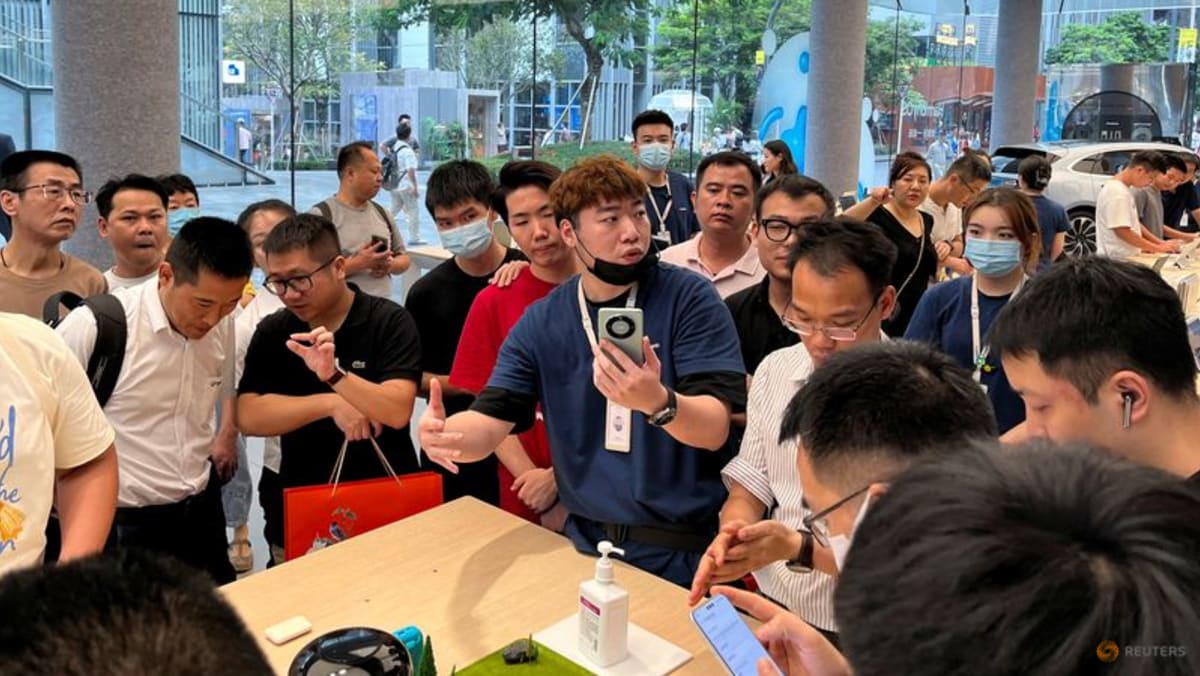Huawei Technologies and China’s top chipmaker SMIC have built an advanced 7-nanometre processor to power its latest smartphone, according to a teardown report by analysis firm TechInsights.
Huawei’s Mate 60 Pro is powered by a new Kirin 9000s chip that was made in China by Semiconductor Manufacturing International Corp (SMIC), TechInsights said in the report shared with Reuters on Monday.
Huawei started selling its Mate 60 Pro phone last week. The specifications provided advertised its ability to make satellite calls, but offered no information on the power of the chipset inside.
The processor is the first to utilise SMIC’s most advanced 7nm technology and suggests the Chinese government is making some headway in attempts to build a domestic chip ecosystem, the research firm said.



From what I understand China does not know how to make their own lithography equipment and they had to be imported from abroad. It’s specifically one of the things the sanctions are targeting. The second paragraph is interesting and it answers a question I had earlier about how they were sourcing their silicone. In the <9nm regime its really important that the silicone is amorphous, if it’s crystalline then lithography will fail since the edges it will etch will be jagged from the crystalline structure of the silicone. So my guess is they can’t make their own silicone either, at least not for etching 7nm chips.
Here’s a bit of geopolitics for you, Taiwan can make lithography equipment, which is why China has been so aggressive about Taiwan lately.
I don’t believe this is true, though I’m certainly no expert on the subject. Taiwan Semiconductor is the largest manufacturer of the chips, but they use lithography equipment manufactured by the Dutch company ASML.
Yeah, the OOP comment doesn’t really make sense. China is being more aggressive about Taiwan because nationalist drum beating is a good distraction from the economic tensions at home and because Biden has been more explicit about the US defending Taiwan than any president before him.
Take a look at the number of people who live in China, then look at their success at reverse engineering and copying technological products, then ask yourself what a couple of thousand of the best engineers they have could do with an unlimited budget and several years. It’s it really inconceivable that they could copy and manufacture this equipment?
It isn’t inconceivable but it is highly unlikely that China was able to design and manufacture their own chips. Chip manufacturing requires multiple inputs from a supply chain that is thousands of vendors long. These vendors are usually small and specialize in making a single component of what goes into the chip making process and there normally aren’t other companies that also duplicate that item. We haven’t even gone into the specialties needed to design the chips or produce the foundries needed to make them.
There is no single country capable of completing every step of the process from design to tooling to manufacturing inputs. Japan, Taiwan, Netherlands and the US are all major players for high end chips but no single one of them can complete the entire process on their own. The Biden administration managed to get all of these players to agree to lock China out of the mid to high end chip market. Biden also made it illegal for IS Nationals on pain of loosing citizenship to help China design chips. So China not only doesn’t have the expertise to call on, they are also locked out of this ecosystem of vendors from these countries.
Could China do it… possibly they’ve thrown a lot of money and have a lot of failed chip companies to show for it. One of the established tech Chinese majors may have pulled it off.
More than likely they completed work on a chip that was in the finishing stages and had the majority of inputs on hand before the embargo was enacted. I’d wait and see if they start pumping out a large volume of these chips then I’d give them credit for a major accomplishment on manufacturing. If they can continue to design new chips without any foreign help then they will have pulled it off in my book. Until then I’m going to have serious doubts.
ASML (Dutch company) are the ones making the most advanced lithography machines right now. Taiwanese industry no doubt has some expertise, but I would guess it’s mainly around building and running the fab not necessarily the intricate workings of the machines.
Indeed